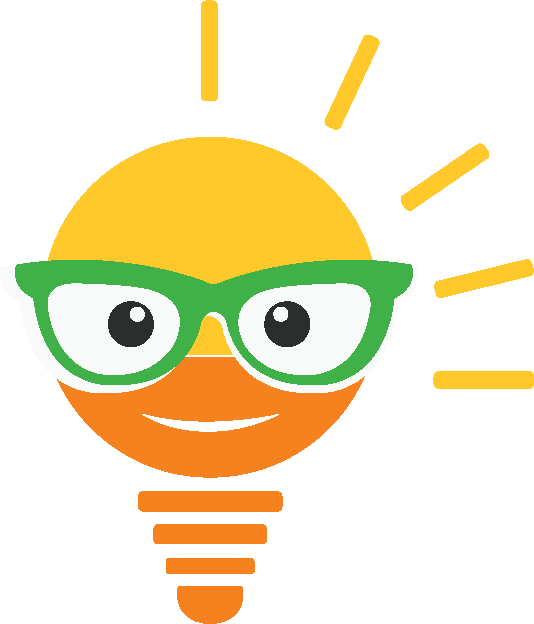Learning To Read - Beginning Reading Skills

Unleashing the Power of Words: Cultivating Fundamental Reading Skills in Children
Childhood is a journey of growth and discovery, and learning to read is an important part of that process.
If your child takes a bit more time to immerse themselves in the world of words than their peers, it's not a cause for alarm. This suggests your child may need more time, tailored guidance, and positive reinforcement to unlock their full reading potential.
At Engenius Learning, we are experts in nurturing emerging readers.
We offer personalized support to ensure your child stays on track and develops a lasting passion for reading. Learning to read begins with understanding the relationship between letters and sounds, a concept known as phonemic awareness. This foundational skill paves the way for reading fluency, vocabulary expansion, and improved comprehension.
Sometimes, children may face challenges not because they're incapable of learning but because these fundamental skills are yet fully developed.
Early intervention is often recommended for children showing signs of reading difficulties to address this.
How Engenius Learning Nurtures Young Readers
When a child struggles with reading, we focus on two key areas: the Alphabetic Principle and Phonological Awareness.
These core skills are the stepping stones to becoming an accomplished reader.
It's essential to master these before fluency and comprehension can be achieved. Pressing for fluency before these foundational skills are secure can lead to frustration and discourage both child and parent from pursuing further progress.
The "Matthew Effect" describes a situation where children who acquire early reading skills continue to thrive, while those facing initial difficulties may lag.
This divergence can persist and grow, potentially labeling and getting de-tracked for college admissions in later school years. At Engenius Learning, we strive to prevent this through our well-crafted Emerging Reader Curriculum.
Our curriculum identifies your child's reading level based on their skill level rather than age or grade.
This allows us to customize our program to meet your child's unique needs. We start with our Level I program for those struggling with basic letter-sound relationships.
As your child gains comfort with letters and sounds, we advance them to our Level II program, focusing on fluency while consolidating the basics.
Once fluency is achieved, we expand vocabulary and comprehension to ensure the comprehensive development of reading abilities.
Empower Your Child to Become a Proficient Reader With Our Free 3-Session Tutoring Trial
We're ready to assist if you have concerns about your child's reading abilities or questions about the reading process.
Contact us today for a free, no-obligation assessment of your child's reading skills.
Call us at 844-56-GENIUS or visit your nearest Engenius Learning Center to discover how we can support your emerging reader. We're confident in our approach and invite you to experience it firsthand.
Request a complimentary 3-session trial to see if we're the right fit for your child, or click here to sign up now.
Finding the proper tutoring support can be daunting, but we're here to simplify that process. We're so confident we can provide the best assistance for your child that we're offering a 3-session free trial. Just fill out the form, and we'll help set your child on the path to reading proficiency without delay.
Please call 844-56-GENIUS or visit your nearest Engenius Learning Center for help with your emerging reader.
Empower Your Child to Become a Proficient Reader With Our Free 3-Session Tutoring Trial
We're ready to assist if you have concerns about your child's reading abilities or questions about the reading process.
Contact us today for a free, no-obligation assessment of your child's reading skills.
Call us at 844-56-GENIUS or visit your nearest Engenius Learning Center to discover how we can support your emerging reader. We're confident in our approach and invite you to experience it firsthand.
Request a complimentary 3-session trial to see if we're the right fit for your child, or click here to sign up now.
Finding the proper tutoring support can be daunting, but we're here to simplify that process. We're so confident we can provide the best assistance for your child that we're offering a 3-session free trial. Just fill out the form, and we'll help set your child on the path to reading proficiency without delay.
Free 3-Day Trial ➤
More Ways to Support Your Child's Reading Journey
Decoding the Reading Process: A Parent's Guide
To support your child's reading journey, understanding the process of learning to read is crucial. This includes grasping the alphabetic principle, phonemic awareness, reading fluency, and comprehension. We'll demystify these terms and provide actionable tips for fostering these skills at home.
Teaching decoding skills to beginning readers is essential to fostering early literacy development. Decoding is applying knowledge of letter-sound relationships to pronounce written words correctly.
This skill lays the foundation for reading fluency and comprehension later on.
To start, it's crucial to introduce children to individual letter sounds, a concept known as phonemic awareness. This can be done through engaging activities like singing alphabet songs, playing letter-sound matching games, or using flashcards.
The goal is to familiarize children with each letter's sounds, which is the initial step in decoding.
Once children are comfortable with individual letter sounds, they can progress to blending sounds to form simple words. For example, a child who knows the sounds for "c," "a," and "t" should be able to blend them to read the word "cat."
This blending activity is a crucial decoding component and often requires guided practice.
Children also need to understand the Alphabetic Principle, which is that letters and letter combinations represent the sounds of spoken language. This principle helps children understand why they're blending sounds in a certain way and reinforces the purpose of decoding.
Consistent practice is critical when teaching decoding skills.
The more opportunities children have to apply these skills, the more proficient they'll become. It's also important to offer positive reinforcement to encourage continued effort and build confidence in their reading abilities.
Teaching decoding can be complex, and parents may find it challenging.
If you get stuck, Engenius Learning offers expert guidance and personalized reading programs to support parents in this endeavor. Our curriculum is tailored to each child's skill level, focusing on developing foundational skills such as phonemic awareness and the alphabetic principle before moving on to more advanced skills like fluency and comprehension.
Here is the phonemic order we teach our students. Your child will have the most success if they master a skill before moving on to the next one.
1. Recognizing Letters & Sounds
2. Consonant Sounds: Bat, sit, big, sat
3. Short Vowels: Yes, gas, wet, tax, tux, fox
4. Initial Blends & Digraphs: Twin, shop, chop, wrap
5. Final Blends & Digraphs: Help, limp, hong, sink
6. Blends, Digraphs & Short Vowels: Flesh, fish, spent, brick
7. Long Vowels: Slave, home, wrote, flute, blame
8. L & R Modified Vowels: Squirm, snarl, swirl, church
9. Irregular Vowels: Bead, bread, bald, hawk, haunt
10. Compound Words: Bookcase, flashlight, headlight
11. Syllabification: Hibiscus, enterprise, hibernate
12. Roots & Affixes: Disconnect, insincere, powerful, unfamiliar
Parent Workshops: Empowering You to Support Your Child
Knowledge is power, and we're here to empower you. We regularly host workshops and seminars to equip parents with practical strategies to support their child's reading journey. These sessions offer a chance to learn from our experienced educators and to connect with other parents facing similar challenges.
Blog: Your Go-To Resource for Reading and Literacy Tips
Our blog is a rich resource featuring articles penned by our seasoned educators. Covering a diverse range of topics, from understanding reading difficulties to picking books that engage reluctant readers, our blog is your one-stop shop for reading and literacy.
By offering detailed information, practical advice, success stories, and learning opportunities, we aim to reassure you of our expertise and commitment. Our goal is to help your child become a proficient reader and equip you with the tools and knowledge you need to support their reading journey at home.
If you feel your young reader is struggling or you have questions about the reading process, contact us today for a free assessment.
Free 3-Session Tutoring Trial
Finding a good tutor is hard & takes a lot of effort. But we are so confident that we are the best place for you, we are offering you 3 free trial sessions. All you need to do is fill out the form and we'll help you get started as soon as possible!
Start Your Free Trial ➤
